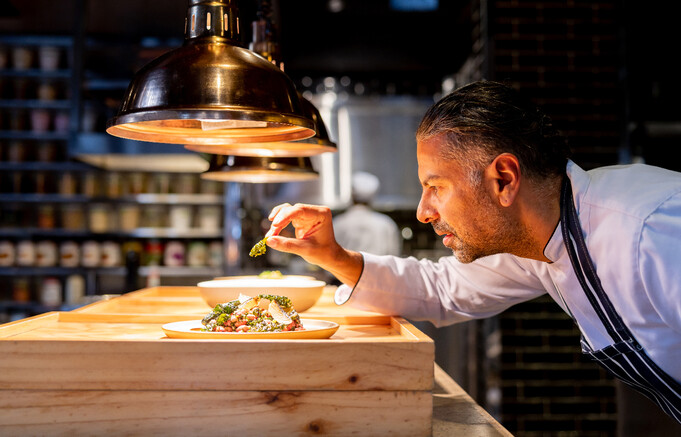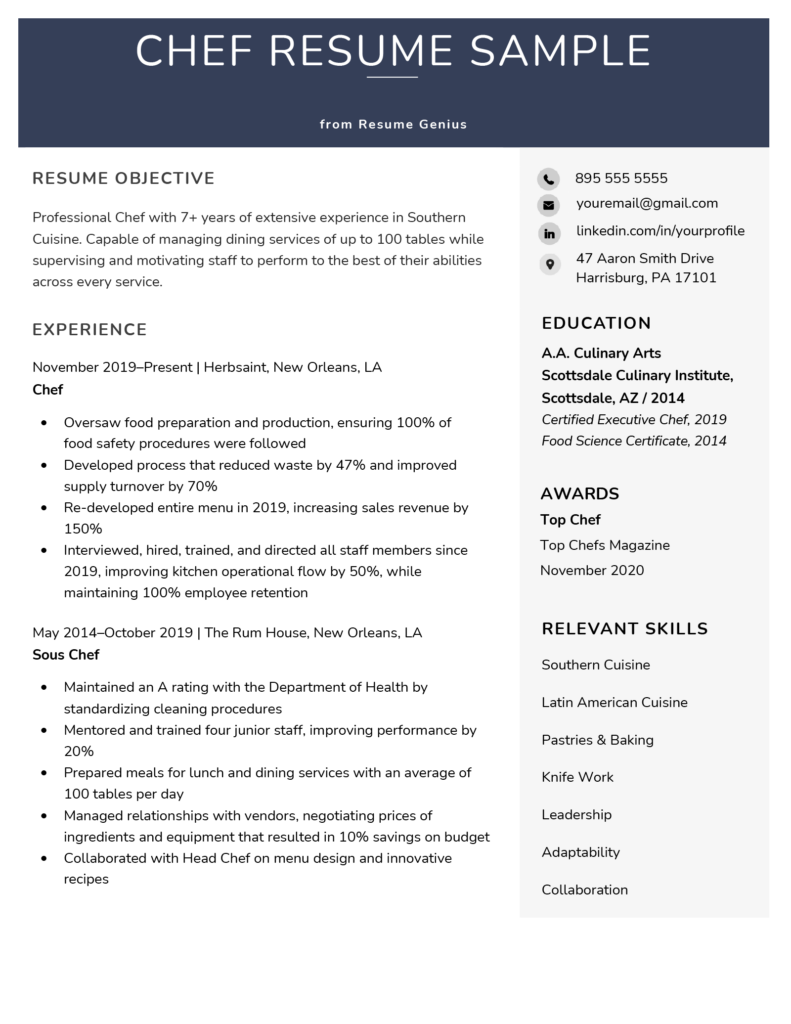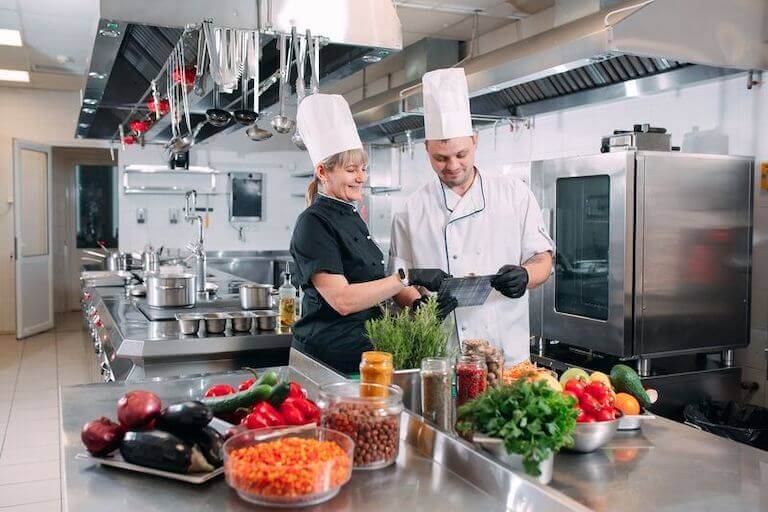Finding specialized chef cuisine jobs in Canada with visa sponsorship is possible with the right approach. I’ll walk you through the steps to secure a job, from highlighting your culinary skills to understanding the visa process. Many restaurants and hotels seek chefs with expertise in international cuisines, and knowing where to apply and how to stand out can make all the difference. This guide will help you through the process and increase your chances of landing a great opportunity.
Job Requirements and Qualifications
To work as a specialized chef in Canada, you need the right skills, experience, and certifications. Employers also consider your ability to handle various cuisines and work under pressure. Understanding these requirements will help you prepare for the job.

- Culinary Education: A diploma or certification in culinary arts is preferred, but extensive hands-on experience can sometimes be enough.
- Work Experience: Most employers require at least two to five years of experience in a specialized cuisine, such as Japanese, Indian, Italian, or French cooking.
- Menu Development Skills: You should be able to create and modify menus, ensuring authenticity and quality.
- Food Safety Certification: A valid Food Handler’s Certificate or HACCP certification is often required.
- Work Permit Eligibility: If you need visa sponsorship, employers may prefer candidates who qualify under Canadian immigration programs.
Read: How to Secure a High-Paying Job i Canada Without a Degree—Success Stories Revealed
Salary Expectations for Specialized Chefs in Canada
Salaries for specialized chefs in Canada vary based on experience, skill level, and the type of establishment. Understanding these salary ranges can help you set realistic expectations when applying for jobs.
- Entry-Level Chefs: $40,000 – $55,000 per year
- Mid-Level Chefs: $55,000 – $75,000 per year
- High-End & Michelin-Star Chefs: $80,000+ per year
- Additional Benefits: Some employers offer housing assistance, relocation support, and performance bonuses.
Where to Find Specialized Chef Cuisine Jobs in Canada
Knowing where to apply can save you time and increase your chances of finding a sponsored job. Here are some of the best ways to find specialized chef positions:
- Job Portals: Websites like Job Bank Canada, Indeed, and Glassdoor list chef job openings with visa sponsorship. Use keywords like “specialized chef visa sponsorship” when searching.
- Hospitality & Restaurant Chains: Big brands such as Fairmont Hotels, Marriott, and major restaurants often hire international chefs. Check their career pages regularly.
- Recruitment Agencies: Some agencies specialize in placing foreign workers in Canada’s hospitality industry. Agencies like Global Hire and Hays Hospitality can help.
- Networking & Referrals: Connecting with chefs, restaurant owners, or hospitality professionals can lead to job opportunities. Attend food industry events or join online chef communities.
- Provincial Nominee Programs (PNP): Some Canadian provinces prioritize chefs under their immigration streams. Look into PNP opportunities in provinces like British Columbia, Ontario, and Alberta.
Read: How to Get a Job in Canada Without a Degree—These 10 Roles Are Perfect for Immigrants
How to Apply for Specialized Chef Cuisine Jobs in Canada
Join Us on Email Newsletter
Applying correctly increases your chances of securing a chef job with visa sponsorship. Employers look for skilled chefs with experience in international or specialized cuisines. Here’s how to apply effectively:

- Prepare a Strong Resume: Highlight your culinary expertise, years of experience, and any specialized skills, such as handling specific cooking techniques, working with dietary restrictions, or leading kitchen operations.
- Write a Convincing Cover Letter: Tailor it to the job, explaining why you are the right fit, your passion for the cuisine, and your willingness to relocate if needed.
- Apply to Multiple Jobs: Increase your chances by submitting applications to different restaurants, hotels, and catering companies instead of waiting for one response.
- Follow Up on Applications: If you don’t hear back within two weeks, send a polite email to express your continued interest and ask about the next steps.
- Prepare for Interviews: Employers may ask about your experience with traditional and modern cooking techniques, kitchen management skills, and how you maintain food quality under pressure.
Read: The 5 Provinces in Canada Where Foreign Workers Earn the Most—Is Your Dream Job Here?
Visa Sponsorship and Immigration Pathways
If you are not a Canadian citizen or permanent resident, you will need a valid work permit. Many employers sponsor foreign chefs, but you must meet immigration requirements.
Temporary Foreign Worker Program (TFWP)
This program allows Canadian employers to hire foreign workers when no qualified local candidates are available. Employers must obtain a Labour Market Impact Assessment (LMIA), which proves that hiring a foreign chef will not negatively impact Canadian workers.
- The LMIA process can take several weeks, and the employer must demonstrate that they have made efforts to hire locally before turning to a foreign worker.
- Once approved, you will receive a job offer, and you can apply for a closed work permit tied to that employer.
- If the job is in a high-demand sector, processing may be faster under specialized streams.
Provincial Nominee Program (PNP)
Some Canadian provinces have immigration streams specifically for chefs due to local labor shortages. If a province nominates you, you can apply for permanent residency (PR) faster.
- Provinces such as British Columbia, Alberta, Ontario, and Saskatchewan often include chefs in their demand lists.
- Some PNP streams do not require an LMIA, making the process easier.
- You may qualify for PNP if you already have a job offer in Canada or significant work experience in a specialized cuisine.
Express Entry System
Express Entry is a points-based immigration system that allows skilled workers to apply for permanent residency in Canada.
- If you have at least one year of skilled chef experience (NOC 6321 or 62200 under TEER 2), you may qualify under the Federal Skilled Worker Program (FSWP).
- Points are awarded based on factors like age, education, work experience, and language proficiency (English/French).
- A valid job offer from a Canadian employer can increase your chances of receiving an Invitation to Apply (ITA) for PR.
International Mobility Program (IMP)
The IMP allows certain foreign workers to work in Canada without needing an LMIA.
- Some chefs may qualify if their job aligns with trade agreements (e.g., NAFTA/CUSMA for U.S. and Mexican citizens) or intra-company transfers for international restaurant brands expanding to Canada.
- If your employer is eligible to hire under IMP, you can apply for an open or employer-specific work permit with faster processing.
Tips to Increase Your Chances of Getting Hired
Chef positions in Canada can be competitive, so standing out is key. Here’s how to boost your hiring chances:

- Get Certified: Additional certifications in food safety, kitchen management, and pastry arts make your resume stronger.
- Gain International Experience: Working in high-end restaurants or with well-known culinary brands makes you more attractive to employers.
- Showcase Your Skills: A portfolio with photos of your dishes or a video demonstrating your cooking techniques can leave a strong impression.
- Be Open to Relocation: Some provinces have a higher demand for specialized chefs, so flexibility with location increases job opportunities.
- Network with Industry Professionals: Join chef events, culinary associations, and online job forums to connect with potential employers.
Securing specialized chef cuisine jobs in Canada with visa sponsorship requires effort, but with the right skills, a strong application, and persistence, you can secure a rewarding career. Keep improving your expertise, search different job opportunities, and stay proactive in your job search.

